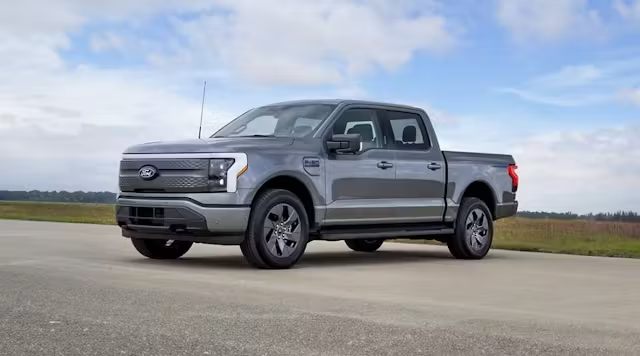Did you know Ford recently recalled over 123,000 vehicles due to a potential brake fluid leak? This issue isn’t just mechanical—it’s a serious safety hazard that could increase stopping distance and lead to accidents. If you own a Ford, especially models like the 2013 Ford Edge or the Ford F150, this article is a must-read.
In this comprehensive guide, we’ll break down everything about the Ford vehicle recall brake problems, how to check if your car is affected, what the National Highway Traffic Safety Administration (NHTSA) says, and what you should do next.
Why Is Ford Recalling Vehicles?

Ford Recalls 123,611 Vehicles Due to Brake Fluid Leak
Ford has issued a recall involving 123,611 vehicles after discovering a brake fluid leak risk that could compromise braking performance. The main cause is corrosion in the brake master cylinder, leading to brake fluid leaking into components like the brake booster. This can increase the time it takes to stop the vehicle.
Affected Models
According to NHTSA, the following Ford models are included in the recall:
- 2013 Ford Edge (brake booster recall)
- Ford F150 trucks (notably for master cylinder failure)
- Some 2017 Ford engines with known recall notices
This recall is part of a larger wave of safety issues Ford has been addressing in recent years, including electrical faults and engine defects.
NHTSA’s Role in the Ford Vehicle Recall

The National Highway Traffic Safety Administration (NHTSA) is the governing body responsible for investigating and enforcing recalls when vehicles are found to be unsafe. NHTSA has:
- Opened an official investigation
- Required Ford to submit defect documentation
- Issued public safety alerts about this recall
You can check your VIN on the official NHTSA recall website to verify if your vehicle is included.
How to Perform a Ford Recall Check
To determine if your vehicle is affected by the brake recall:
- Locate your VIN (Vehicle Identification Number) — typically found on your dashboard or driver-side door.
- Visit Ford’s recall site or the NHTSA recall database.
- Enter your VIN and click search.
If your vehicle is listed, contact your nearest Ford dealer immediately to schedule a free repair.
Ford F150 Master Cylinder Replacement Cost
If you’re outside the recall period or want a preventive fix, understanding the cost of a master cylinder replacement is crucial.
- Ford F150 master cylinder replacement cost: $350–$700
- Parts: $100–$200
- Labor: $250–$500
Prices can vary depending on your location and whether you’re using original Ford parts or aftermarket alternatives.
What to Do If Your Ford Has Brake Issues
If you notice signs like:
- Increased braking distance
- Brake warning lights
- Leaking fluid near the wheels or brake pedal
Do not drive the vehicle. Instead:
- Contact a certified Ford dealer
- Check for active recalls
- Get a free inspection if your car is part of the recall
Are Other Ford Recalls Connected?
Yes. Aside from the brake issue, several Ford models have experienced engine problems and other safety defects. For example:
- 2017 Ford engines were recalled due to coolant leaks and fire risks.
- Ford Explorers faced steering problems.
Staying informed about all Ford recalls, not just brakes, can help protect you and your family.
Why Brake Recalls Are Serious

Braking issues are among the most dangerous vehicle defects. A leak in the brake booster or master cylinder can:
- Increase stopping distance
- Cause complete brake failure in extreme cases
- Lead to accidents, injuries, or fatalities
This is why Ford, in compliance with NHTSA, is taking proactive steps to notify owners and fix affected cars.
Ford’s Official Statement
Ford has acknowledged the defect and stated:
“We are working with affected customers to ensure vehicles are repaired quickly and at no cost. Safety is our top priority.”
Repairs will be completed free of charge at any certified Ford dealership.
Conclusion
If you drive a Ford—especially a 2013 Edge, F150, or a 2017 engine model—this recall should not be ignored. Brake problems can be life-threatening.
Take action now:
- Use the Ford recall check tool
- Visit a Ford dealership
- Ensure your vehicle is safe to drive
Was your vehicle affected? Drop your experience in the comments or share this article to spread awareness. For more auto safety insights, explore other blogs on AutoSniff.
Stay informed. Stay safe.








